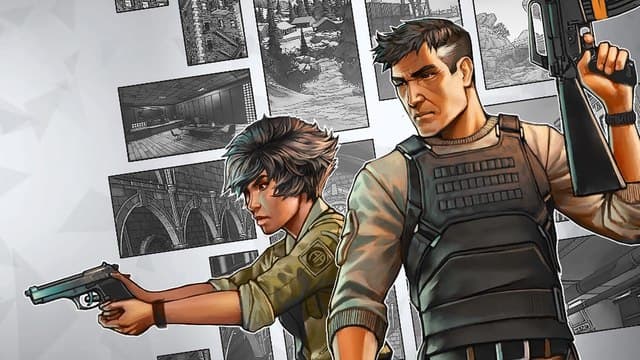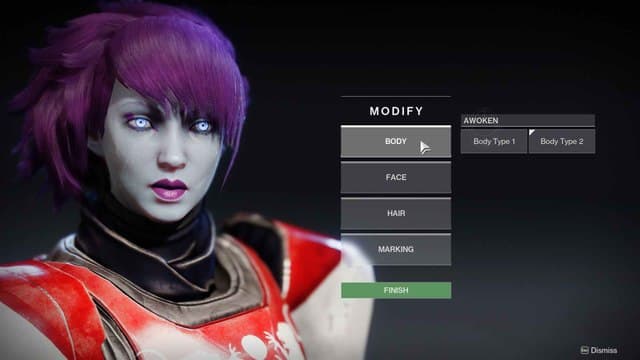On January 31, 2022, Team17 announced its intention to license the Worms brand to a third party to produce a set of “environmentally friendly” NFTs, attracting the anger of the internet. Online commenters were critical of the announcement, while publishing partners distanced themselves from the project; less than a day later, Team17 made an embarrassing u-turn, putting an end to the MetaWorms project with an apologetic press statement.
Over a dozen current and former employees, who spoke to me under the condition of anonymity due to fear of professional backlash, said that the NFT announcement had caught them off-guard, but that it wasn’t surprising given the growing disconnect between management and staff inside the company. They told me about a range of other issues, from employees struggling to live off the salaries provided, to complaints about the number of games being signed and the resources made available for development. All of this has since come to light inside Tom Phillips’ report for Eurogamer, but those I spoke to were able to reveal some additional details about the company’s internal struggles and the attempts inside the company to voice these concerns.
Departments Stretched Thin
Many of the people I spoke to were exceptionally proud of working at Team17 and highly complimentary of their colleagues, but described upper management as uncommunicative and indifferent. For instance, they agreed that the key reason behind the NFT U-turn wasn’t because of pressure from staff internally, but because external partners had chosen to speak up. And they say that there were multiple other instances over the last few years where management hadn’t listened to staff regarding projects and working conditions, leading to low morale at the company and high employee turnover.
Current and former Team17 developers spoke about the development of Worms Rumble as indicative of these problems. The game — another spin-off from Team17’s popular Worms franchise – emerged from a small development prototype that a group of developers at its Wakefield offices had put together. Compared to the traditional turn-based formula of older Worms games, Rumble took a slightly different approach, letting players control their worms in real-time across different game modes, like Death Match, Last Worm Standing, and Last Squad Standing.
But many of the sources I spoke to say that, although the project got off to a good start, it was never given the proper time or resources necessary to succeed. This was in spite of the project being an important first-party release for Team17 in development for six platforms, including two newly-released consoles (PS5 and Xbox Series X/S).
“We always played second fiddle to the external teams,” says one former developer who worked on Worms Rumble. “Especially if Debbie [Bestwick] had signed [a project] or she was really close to the developers, we just didn’t get a say. It was, ‘We need these people on this project and that comes first.’ So we had to wait, we had to struggle, and we had to find an alternative way around that to make things work, and that led to things like increased overtime.”
One of the key resources the team found itself lacking was experienced staff, with junior employees having to take on greater responsibility without the necessary training to ease them into their new positions. Those inside the company petitioned for more staff, but resources were always needed elsewhere instead. According to those I spoke to, the release date was also set in stone well in advance, due to a long-standing PlayStation Plus deal.
“We hardly had any seniors on the project,” one former employee tells me. “There were a lot of juniors and they were thrown into the deep end and didn’t have time for training. They had complex things to look at, and good on them, they got on with it. But, for some of them, it was so difficult. Their wellbeing was affected because of this. I know one person who was given extra responsibility because of this and they didn’t do well at all. They were quite unwell. And it was horrible. It was unfair on them.”
The development team on Worms Rumble had intended for the game to be a live service, with regular updates to improve the experience and keep players coming back. But only a month after the game launched on December 1, 2020, the company dramatically reduced its funding and the ambitious plans the team had for future updates were dropped. Several employees within the studio say they voiced their dissatisfaction with this decision, considering all the effort that had gone into releasing the game on time, but it did little to convince management to change their minds. The game was later ported to Nintendo Switch, Xbox One, and Xbox Series X/S on June 23, 2021, but it has only received irregular updates since launch.

Too Many Games
According to those I spoke to, first-party titles weren’t the only games to suffer. The publishing arm of Team17 was also stretched thin, with the company constantly signing more games than their staff could handle within standard work hours. This didn’t just impact the Wakefield office, but the Nottingham one as well, where Team17’s marketing and PR is based.
Several staff across both offices told me that employees struggled to handle the increased workload, and some said that employees would even skip lunch to avoid disappointing the developers who had trusted them to help with their games. As Eurogamer noted in its own article, in 2020, Team17 published seven games from other studios, and in 2021, this number rose to eight. According to staff, there was a constant pressure on the acquisitions team to bring in more games, and this led to both paid and unpaid overtime, as employees struggled to meet their obligations to partner developers.
“The company has always been great at signing amazing games,” says one former employee. “But when you turned around and said, ‘I don’t have the capacity to [do] this’ or ‘I have games on my table that are coming out together’, you were just ignored. You just got the response of, ‘We’re all busy, but we’re a team.’ And you just sit there like, I don’t feel like a team, because everyone is stressed out. It was hard for there to be a nice atmosphere within the company.”
“We definitely had too many projects, to the point that it was unmanageable,” says one former employee. “I always felt that I couldn’t do the best job, or indeed the job that the developers deserved, on any project because there were just too many and we were stretched far too thin. Devs were promised resources that we couldn’t deliver both on the development and the marketing side.”
Several staff say they not only raised concerns about the quantity of games coming into the studio, but also highlighted some of the controversial content in some of the games being signed. Such was the case with VOID Interactive’s Ready Or Not, a first-person SWAT game that Team17 announced it was publishing back in March 22, 2021.
Some staff took exception to the game’s inclusion of a school shooting level, but complaints about the game’s content were ignored at the time. On December 20, 2021, however, after VOID mentioned the level on a Reddit AMA — Team17 and VOID parted ways following a brief backlash on social media.
Low Pay and Harassment
Besides issues with overwork, one of the most common complaints I encountered during our conversations with current and former staff was low pay, particularly among younger members of Team17 and QA staff. As Eurogamer recently reported, QA staff have a current base salary of £16k, which goes up to around £19k for a more senior QA role. Salaries at the company used to be even lower in the past, roughly around 13k to 14k — something that according to sources only changed within the last five years. Because of this, some within the industry had previously nicknamed the company Team14.
As a result, multiple sources told me, some staff at the studio struggled to pay for rent and groceries, so they would often work extensive overtime in order to get the extra pay. QA staff at the studio have been trying to negotiate for an increase in salaries over the last couple of years, but according to multiple sources they were told in 2021 that no department would receive a pay rise that year and that they would have to wait until April 2022 before this could be reviewed again. Adding to these frustrations, Team17 also cut bonuses for 2021 across its Wakefield and Nottingham offices, due to the “disappointing” sales of both Worms Rumble and The Survivalists. Current and former employees tell me this was a decision that led to a number of people leaving the company, with many since receiving significant upgrades to their pay upon joining other companies.
Many saw this decision as “a kick in the teeth”, especially given the success of its founder and the number of acquisitions the company has made over the last two years. Team17’s founder Debbie Bestwick has regularly appeared on the Sunday Times Rich List as well as lists of the highest paid CEOs in gaming. Meanwhile, the company has been spending cash on IPs and developers left and right.
In 2020, it acquired Manchester-based developer Yippee Entertainment for £1.4 million. Then in 2021, it acquired Storytoys’ parent company Touchpress and the rights to Golf With Your Friends for $26.5 million and £12 million respectively. These acquisitions have even continued into 2022, with Team17 acquiring the Hell Let Loose IP for £46 million and German publisher Astragon for $86 million. For some staff, it’s been hard to stomach.
“People are struggling,” says one former employee. “And it’s the fact they didn’t get that after everything had been done. Because there were so many projects, and we’d delivered on all those projects. And it’s like that alone, then having to go through the pandemic, people were at breaking point. I really struggled with my mental health, but I couldn’t take time off. Because if you seem to struggle you have projects taken off you and you’ll never be given the opportunity again.”
Eurogamer has since reported that Team17 CEO Michael Pattison has promised an immediate review into pay for staff in the company’s QA department. But pay wasn’t the only issue I encountered during our conversations with staff. Others reported an atmosphere where critical voices were managed out of the company and where sexual harassment was treated with a slap on the wrist.
According to those I spoke to, incidents of sexual harassment took the form of explicit messages both inside and outside of work. Former staff referred to a particular incident in the Nottingham office where a woman was sent on an overseas business trip with a man who was harassing her both in person and online. This was a decision that many inside the studio criticized, but Team17 did little to mediate the issue and colleagues instead had to step in. Former staff say Team17 later let this female employee go. Her male co-worker was able to leave the company on his own terms and now works elsewhere in the games industry. Eurogamer has since reported that Pattison said the studio has a zero tolerance policy to harassment.
I reached out to Team17 for a response to these complaints, but a spokesperson for Team17 Digital provided me with the same statement it had provided to Eurogamer: “Team17 Digital takes its responsibilities to its staff extremely seriously. We constantly review our internal policies and practises and assess how we support our employees through our engagement survey and through direct dialogue with the team, including newly-established employee-led working groups. This encompasses compensation, workplace culture and environment, among other key areas, to continually strive to improve our employee experience. In January, as part of this, we announced new improvements to the way we pay and reward our Teamsters. We care passionately about our Teamsters and our aim is to ensure they feel connected, valued and have a sense of belonging and purpose, and that they continue to be proud of Team17 and the products we develop and publish.”
Since these issues have come to light, publishing partners like Ghost Town Games and Aggro Crab have voiced their solidarity with the workers at the studio in their own statements on Twitter. Many current and former staff who spoke to me were hopeful that this increased scrutiny from those outside the company would translate into meaningful change, but have said it’s hard to tell. Many, however, share the same sentiment about what needs to happen.
As one former member told me, “Team17 has lost its way. It was successful because of its staff, and senior management thought it was because of them. Those that spoke out were silenced or ignored. I believe Team17 can grow and improve, it just needs to listen and invest profits back into what made it successful — its staff, from the ground up.”


